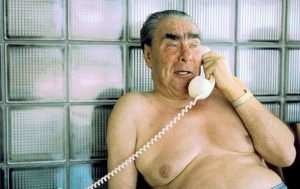There’s a scene in Sunset Boulevard in which Norma Desmond, the former silent film star, is watching a movie in her Hollywood mansion. It’s one of her own movies, of course — they’re all she ever watches — because in a world full of mirrors, only they still show her what she wants to see. “There just aren’t faces like that anymore,” she says; what she doesn’t say, but to the audience is obvious, is that her own face isn’t like that anymore, either.
Lately, Norma Desmond has become relatable. Tormented not just by the existential realities of middle age but the luminous spectre of her famous younger self, she is the very picture of the reluctantly-ageing millennial. We are the first generation to experience, en masse, something close to that agonising fade from celebrity to obscurity — the first generation whose younger selves aren’t tucked away in private photo albums but publicly immortalised on social media. For 20 years, millennials have been curating their lives for an audience, seeking affirmation from the internet like the queen in Snow White, obsessed with her own reflection.
We should have considered, perhaps, that it would end for us as it ended for her: with the mirror rolling its eyes and calling us “cheugy”.
Millennials, no matter how much we dress, act, or meme to the contrary, are not kids anymore. The youngest of us are approaching 30; the eldest turned 40 back during the Donald Trump administration. Just this week, our paper of record heard the “Millennial Death Wail”. Middle age has come for my generation.
As an elder millennial, I’ve witnessed this transformation sweeping through my own peer group on social media, and particularly Facebook, where all my high school friends now inhabit an eerie aesthetic limbo in which they look sort of like themselves, but also like they’ve been possessed by the spirits of their middle-aged parents. The days of taking intentionally hideous photos of ourselves — another trend pioneered by millennials — are surely over. The joke back then was that you had to try to be ugly; now ugly is, if not your default state, then attained with so little effort that it’s not remotely funny. Even the bravest among us aren’t so brave: when one of my prettier friends posted a “no makeup, no filters” selfie last month in honour of her 45th birthday, you could see the tell-tale circle of a ring light reflected in her irises.
The alternative, though, would be to stop posting at all, and this is the one thing we cannot do. Millennials have been hashtagging their experiences, honing their personal brands, and controlling their narrative for two decades; of course we would turn ageing into content, just like we do with everything else. Younger millennials have taken to joyfully terrorising Gen Z with unfiltered photos of their barely aged faces, while elder millennials offer up ironic gripes about back pain and slowing metabolisms and the famous change of life that some portmanteau-loving posters have taken to calling the millenopause. (Others, it should be noted, have not taken to this and indeed would rather remove their own eyeballs with a spoon.)
Underlying this urge to hashtag is perhaps a sense that the best defence is a self-deprecating offence. Lena Dunham, a chronicler of millennials’ failures to grow up, once said: “Any mean thing someone’s going to think of to say about me I’ve already said to me, about me, probably in the last half-hour.” For a generation that once learned to style itself as a bunch of avocado-toast-snarfing, underachieving, financially illiterate libertines in order to keep Boomer critics at bay, it makes sense to rebrand ourselves as old and irrelevant before Gen Z decides to do it for us.
But ironically highlighting our impending middle-aged decrepitude doesn’t just protect millennials from the slings and arrows of the next generation’s mean teens; it also helps us pretend to ourselves that we’re not terrified by the inevitability, and vulnerability, of advancing age. To go through menopause is to confront the truth that our bodies are machines that run on their own, finite timeline: once you’ve stopped menstruating, it’s just a matter of time before you also stop breathing. To go through millenopause, on the other hand, is to hold your mortality at a cute, narrative remove. Menopause is existential dread; millenopause is a viral hashtag and a video of you taking your HRT out of a pastel-coloured subscription box.
For a generation that has clung for longer than most to the sense of being youthful and misunderstood, this makes sense as a coping mechanism. Millennials have famously already either effectively staved off — or failed to achieve — so many of the trappings of adulthood. We don’t have a single furrow on our pre-emptively-Botoxed brows; we don’t have a single dollar set aside for retirement. Our living situations, bank accounts, and faces alike generally look like they belong to someone closer to 25 than 40, which only fuels the conviction, even now, that we never did get around to growing up. As The Times‘s recent take on the millenopause had it: “We’re not in charge here. We’re so infantilised that I feel as if I’ve skipped straight from newly graduated to middle-aged.”
Of course, that infantilisation isn’t just about creating a trendy new word — or a whole new marketing category — to describe the distressing reality that our generation of sexy babies is starting to sprout grey hairs and crow’s feet. It’s about the internal sense of having passed the halfway mark of our lives with little to show for it, which is in turn a product of our bizarre and fraught symbiosis with the generations above us.
If millennials haven’t aged into power, it’s at least in part because our Boomer parents are refusing to age gracefully out of it, instead maintaining a stranglehold on everything from their executive level jobs to their real estate holdings to the freaking White House. As long as the gerontocracy keeps hogging the spotlight, there’s little to do while waiting in the wings except turn on our front-facing cameras and crack ironic jokes about how much our backs hurt.
Eventually, perhaps we’ll even distance ourselves into a complete rejection of middle age, the way we “adulted” our way out of ever becoming actual adults — at least until the ominous creaking and crackling of our decaying bodies will grow too loud to ignore.
And yet, we’re luckier than poor Norma Desmond, whose glamorous seclusion is really just a way of shielding herself from the world’s indifference. Joe Willis, Norma’s assistant and sometimes paramour, sort of understands this — “The plain fact was she was afraid of that world outside, afraid it would remind her that time had passed” — and eventually tries to force enlightenment on her: “You’re a woman of 50, now grow up! There’s nothing tragic about being 50, not unless you try to be 25!”
But what he doesn’t understand is that when the whole world knew you at 25, being 50 is not just tragic but impossible. Norma lives in the past because there’s no place for her in the present. Gone are the silent films she starred in, and gone, too, is the luminous young woman she was, and still wants to be — a woman who can exist in this new, changed world only as a memory.
Some millennial women seem to share Norma’s mindset: these are the ones who’ve stopped posting pictures of themselves entirely, instead typing updates from behind profile photos that haven’t changed since 2018. I sometimes imagine us hunched at our keyboards or over our phones like a bunch of Dorian Grays in reverse: we are the ageing paintings hidden away from public view, while our youthful avatars cavort together in cyberspace.
But time is passing for millennials, as it has for everyone else. Cute portmanteaux aside, we are not the first generation to experience menopause, nor to reckon with the sweating, achy, existential dread of entering the middle section of life. But for the generation that invented the concept of the personal brand — and with it, the possibility of infinite rebrands — we don’t have to waste away like Norma, waiting for some Hollywood gatekeeper to invite us back into the spotlight. We can always turn the camera on ourselves; we can always tell a new story about who we are and what we’re doing. And we are always, thanks to fillers and filters and Facetune, ready for our closeup.
Disclaimer
Some of the posts we share are controversial and we do not necessarily agree with them in the whole extend. Sometimes we agree with the content or part of it but we do not agree with the narration or language. Nevertheless we find them somehow interesting, valuable and/or informative or we share them, because we strongly believe in freedom of speech, free press and journalism. We strongly encourage you to have a critical approach to all the content, do your own research and analysis to build your own opinion.
We would be glad to have your feedback.
Source: UnHerd Read the original article here: https://unherd.com/




